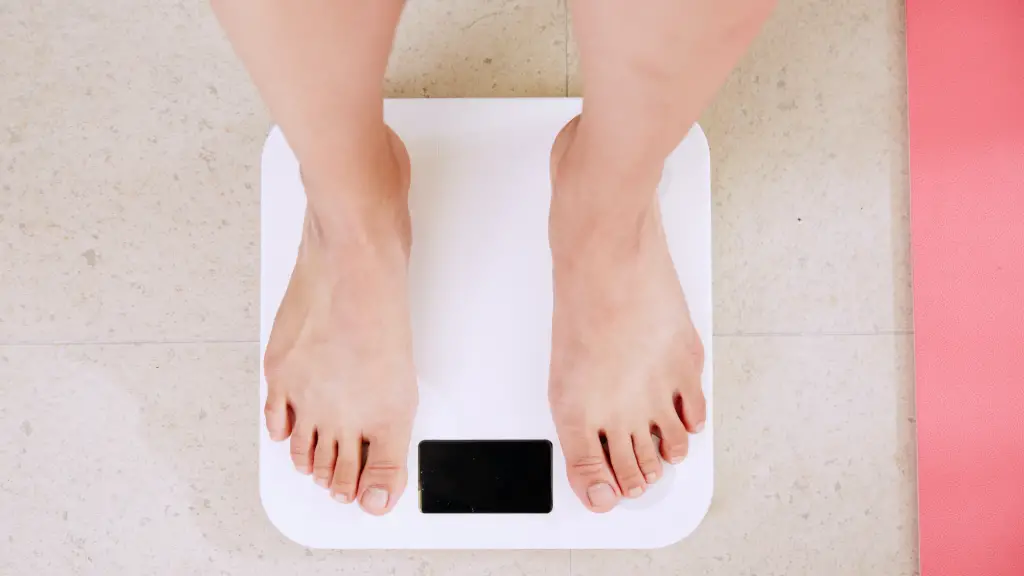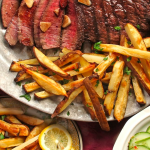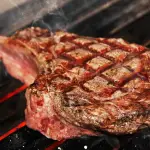Many people start the carnivore diet with the best intentions to change their body. They’ve seen the transformation photos online, and they’ve heard about how the carnivore diet treats numerous health problems, from anxiety to skin issues.
However, a few weeks or months into the diet and find they’re not losing weight.
In this article, we explain from a medical perspective why you might not be losing weight on a carnivore diet, and give you easy, actionable tips for getting the success that feels just out of reach.
TABLE OF CONTENTS
How Does the Carnivore Diet Help Weight Loss?
The carnivore diet is a restrictive diet of 100% animal products, namely meat, eggs, and fish. Dairy is often included for people who tolerate it well.
This animal-based diet helps in reducing weight via the following ways:
- It reduces your caloric intake and puts you in a calorie deficit
- A high-protein diet can make you feel you more full after meals
- High protein intake enhances your metabolic activity and results in burning more calories
In short, a reduced calorie intake and burning more calories promote weight loss.
What do Studies Say?
Many studies have proven the benefits of a high-protein, low fat diet for weight loss.
A daily intake of 1–2 grams of protein per kilogram of body weight can significantly help weight loss and improve blood pressure. Reducing daily protein intake can result in weight regain, because it results in a negative energy balance by increasing energy expenditure and helps treat obesity and metabolic syndrome (Westerterp-Plantenga, Lemmens, & Westerterp, 2012).
One research study on 132 obese individuals for three months who were given different protein-rich diets with varying degrees of carb intake showed that those who consumed a high protein content displayed better results in losing weight than those having low protein content in their diet. (Soenen et al., 2012)
Why You’re NOT Losing Weight on a Carnivore Diet

There are several reasons the carnivore diet might not be helping you lose weight.
1) Change in Metabolism
The main reason a carnivore diet might not lead to weight loss is because you need to stick to it for a while for it to work.
Short term, the carnivore diet helps reduce weight quickly, but over time our metabolism adjusts itself so that there is no further decrease in weight.
2) You’re in a Calorie Surplus
Another reason is because meat is high in calories, so you might be eating too much to lose weight. For example, you consume 2000 kcalories when you need just 1500 kcalories. These extra 500 kcalories build up in the body and result in weight gain instead of weight loss.
3) You’re not Drinking Enough Water
Not drinking enough water leads to weight loss slowing down, as water is necessary for protein and fat metabolism. Not drinking enough water results in weight gain rather than loss.
4) You’re Experiencing Side Effects
Side effects can make it difficult to stick to a restrictive diet.
Many people experience constipation at first, due to a lack of fiber. Fat and protein also take longer to digest, which causes gut distress. These symptoms will pass, but take longer for some people.
How to Optimize Your Carnivore Diet for Weight Loss
Check the following to optimize your carnivore diet protocol for losing body fat.
Get Enough Electrolytes
One gram of salt can provide you with almost 400mg of sodium, which is necessary for the normal functioning of your nerves and maintaining body fluids in adequate proportions in different parts of the body.
Around 3 to 6g of sodium is required for an average individual’s everyday activities. However, for an individual on a carnivore diet, salt in the diet cannot fulfill the daily demand of sodium, so a high sodium intake is recommended.
Eat Enough Protein
Make sure that you’re eating enough protein from your animal-based foods.
A high protein diet satiates you earlier and therefore reduces your total caloric intake. It also affects your metabolic functioning and energy pathways and uses excess fat from your body for energy usage.
You can try adding high-quality carnivore-friendly protein shakes.
How to Kick Start Losing Weight on a Carnivore Diet
If your diet is optimized, but you’re still not losing weight, try these tricks and alternatives.
1) Incorporate Intermittent Fasting
Intermittent fasting means eating only within certain windows throughout the day. For example, skipping breakfast and only eating between 12pm and 6pm.
It helps burn extra belly fat and protects from several disease states. Many medical practitioners suggest it as the best way to lose weight while keeping yourself healthy. The carnivore diet and intermittent fasting are an ideal match.
Research has shown that 3 to 24 weeks of intermittent fasting results in 3-8% weight loss. It has also demonstrated a decrease of 4–7% in waist circumference due to removing harmful belly fat (Barnosky, Hoddy, Unterman, & Varady, 2014).
2) Add Paleo Foods
If you’re finding the carnivore diet too strict, try adding in other foods that our ancestors would have eaten.
The difference between the carnivore diet vs the paleo diet is paleo is a diet based on whole foods such as meat, vegetables, fruits, nuts, milk, and seeds. All processed food items are eliminated but veggies and fruits are okay.
This diet has been shown to result in a reduction of weight in an equally effective way to the carnivore diet. In a study, a three-week paleo diet resulted in 2.3-kilogram weight loss and a 1.5 cm reduction in waist circumference (Österdahl, Kocturk, Koochek, & Wändell, 2008).
You could also try a simple carnivore diet with fruit — it’s higher in carbs, but there are still no harmful vegetables.
3) Reduce Fat Intake
Fat provides twice the energy compared to carbs. A lower-fat carnivore diet restricts caloric intake and, as a result, helps in effective weight reduction.
4) Try Alternative Diets
If you’re not enjoying the carnivore diet, you can switch to other diets inspired by natural, ancestral eating, such as the DASH diet.
This is a diet mainly designed to limit the chances of the development of hypertension. It includes the consumption of lean meat, low salt foods, fruits, nuts, vegetables, and legumes in a specific proportion in each meal serving.
Research has shown that individuals on the DASH diet lost more weight than those on a control diet (Soltani, Shirani, Chitsazi, & Salehi-Abargouei, 2016).
Key Takeaways
Science has shown that the food that our ancestors ate is more beneficial than today’s processed food, and that the carnivore diet works.
If you’re not getting the results you want, try the following:
- Drink enough water and get adequate electrolytes
- Ensure you’re eating enough protein and not just fat
- Check you’re in a calorie deficit (burning more than you consume)
- Add other ancestral foods to help adherence
Good luck on your weight loss journey.
References:
Barnosky, A. R., Hoddy, K. K., Unterman, T. G., & Varady, K. A. (2014). Intermittent fasting vs daily calorie restriction for type 2 diabetes prevention: a review of human findings. Translational Research : The Journal of Laboratory and Clinical Medicine, 164(4), 302–311.
Österdahl, M., Kocturk, T., Koochek, A., & Wändell, P. E. (2008). Effects of a short-term intervention with a paleolithic diet in healthy volunteers. European Journal of Clinical Nutrition, 62(5), 682–685.
Soenen, S., Bonomi, A. G., Lemmens, S. G. T., Scholte, J., Thijssen, M. A. M. A., Van Berkum, F., & Westerterp-Plantenga, M. S. (2012). Relatively high-protein or “low-carb” energy-restricted diets for body weight loss and body weight maintenance? Physiology & Behavior, 107(3), 374–380.
Soltani, S., Shirani, F., Chitsazi, M. J., & Salehi-Abargouei, A. (2016). The effect of dietary approaches to stop hypertension (DASH) diet on weight and body composition in adults: a systematic review and meta-analysis of randomized controlled clinical trials. Obesity Reviews : An Official Journal of the International Association for the Study of Obesity, 17(5), 442–454.
Westerterp-Plantenga, M. S., Lemmens, S. G., & Westerterp, K. R. (2012). Dietary protein – its role in satiety, energetics, weight loss and health. The British Journal of Nutrition, 108 Suppl 2(SUPPL. 2).









Leave a Reply